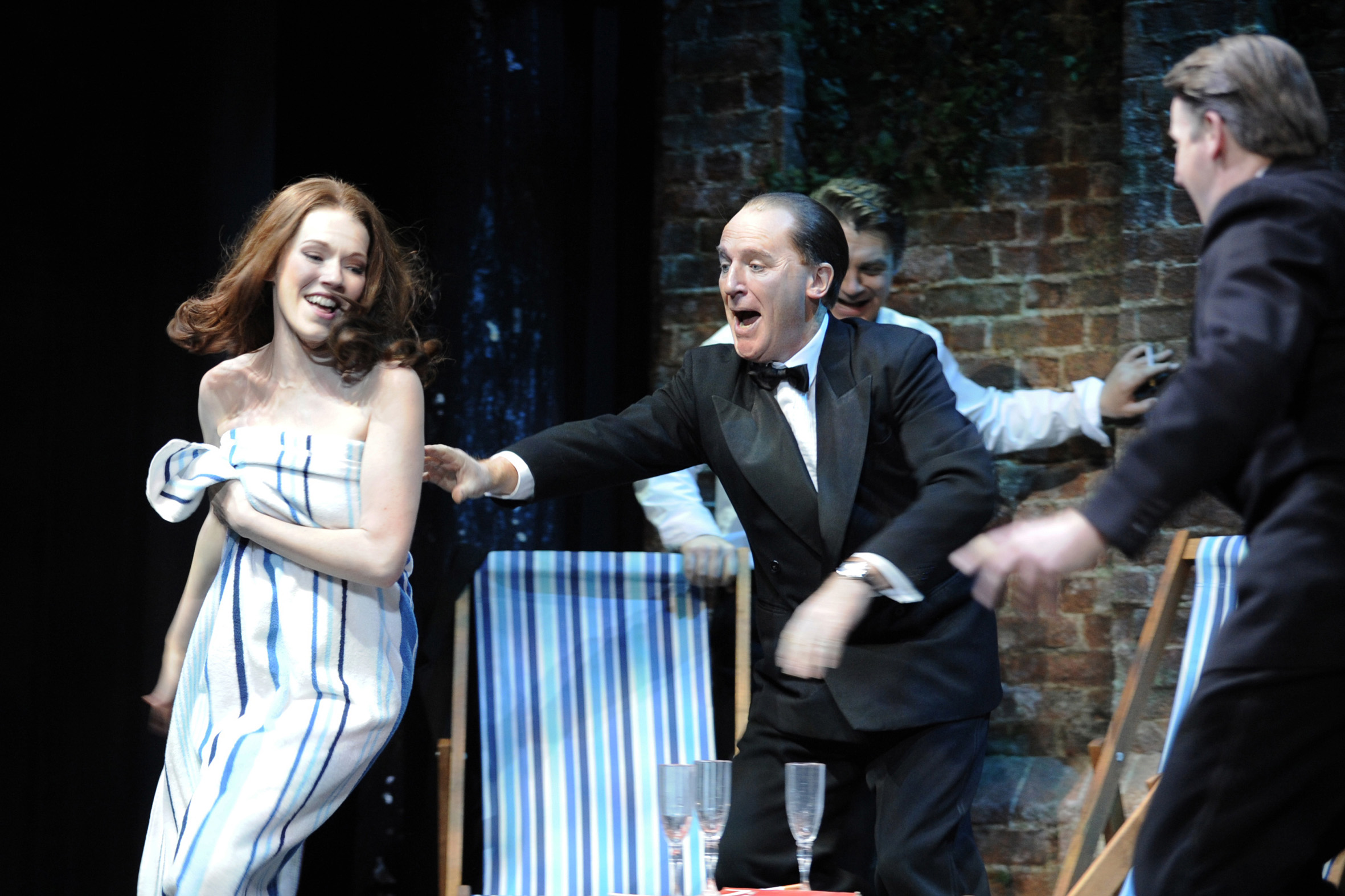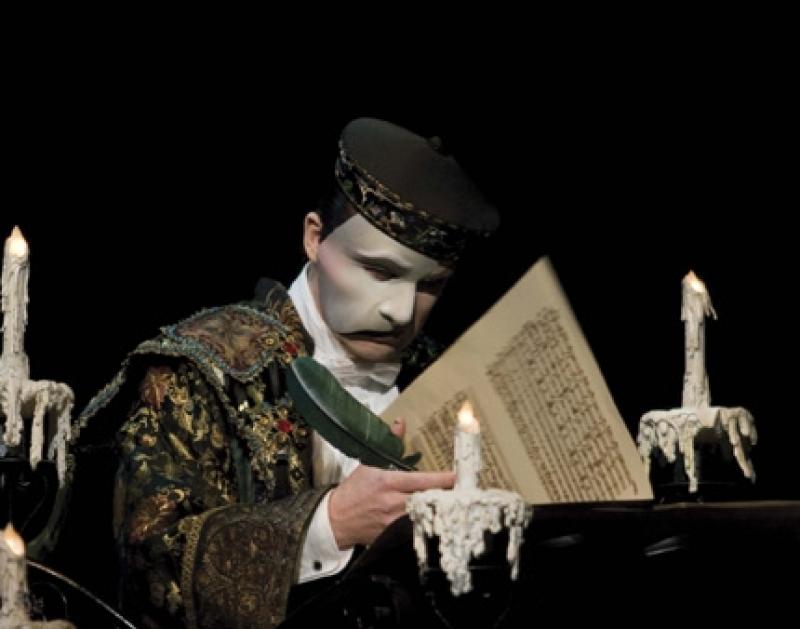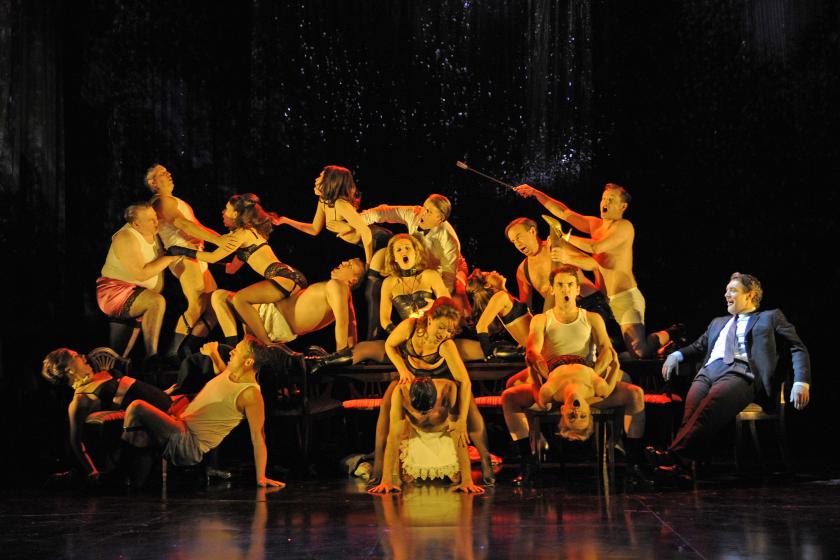Unlikely subjects can make for great musicals. (Assassins, anyone?). Just as great subjects can make for terrible ones (the Broadway Breakfast at Tiffany’s comes to mind). Sadly Andrew Lloyd Webber’s latest project can’t redeem itself on either count. An awkward story allied with a treatment that veers from unexciting to embarrassingly bad, the only marvel here is how it ever made it past the workshop stage. I would have hated Stephen Ward if I hadn’t been so numbed by boredom that I couldn’t muster emotion even approaching that intensity.
The internet has been rife with chatter over the musical’s poor title, and while Stephen Ward isn’t the snappiest moniker, its problems pale compared to the poor man’s profession. There’s no good rhyme for “osteopath”, it has an unfeasible number of syllables and leaps out of any line you try and sing through it. Faced with such an insurmountable challenge the libretto simply gives up and settles for ungainly prose.
Lloyd Webber’s genius is sincerity rather than sleaze
Squeezed like an overweight teenager into a Prom dress, Don Black and Christopher Hampton’s words burst through Lloyd Webber’s too-tightly corseted melodies in all the wrong places, sprawling everywhere without ever hitting by chance on a good joke. The best line of the show, the song title “You’ve never had it so good. (You’ve never had it so often)”, is an amalgamated recycling of other people’s wit.
 And so we’re condemned to a blow-by-blowjob account of the Profumo affair, wearily narrated by Ward himself. Without him, anyone under 60 might struggle to follow the brisk succession of plot-significant cameos, but to rely so heavily on narration is to admit what many must already has suspected – that this is not a natural plot for a musical, no matter how many orgies you throw into the mix.
And so we’re condemned to a blow-by-blowjob account of the Profumo affair, wearily narrated by Ward himself. Without him, anyone under 60 might struggle to follow the brisk succession of plot-significant cameos, but to rely so heavily on narration is to admit what many must already has suspected – that this is not a natural plot for a musical, no matter how many orgies you throw into the mix.
For a start, none of the characters experience enough emotion to carry a conversation, let alone the primary-coloured intensity required to sustain a song. Politically the stakes might have been high, but personally they don’t amount to much. If anyone has ever written a great duet about casual sex I’d love to hear it; Lloyd Webber certainly hasn’t. His talents are misapplied here, trying to do a Sondheim without the American’s strength to force the musical moment to its crisis.
 When Lloyd Webber writes ballads they are Disney-sweet and (with the exception of Mrs Profumo’s “I’m hopeless when it comes to you”) barely grafted onto their blank characters. Only Joanna Riding's Mrs Profumo (who was herself the actress Valerie Hobson) gets a hint of an inner life, the sole moment approaching sincerity in a show whose central trio of Christine Keeler (Charlotte Spencer, pictured left), Mandy Rice-Davies (Charlotte Blackledge, pictured above with Spencer) and Ward himself (Alexander Hanson) seem both sordid and not a little bit stupid.
When Lloyd Webber writes ballads they are Disney-sweet and (with the exception of Mrs Profumo’s “I’m hopeless when it comes to you”) barely grafted onto their blank characters. Only Joanna Riding's Mrs Profumo (who was herself the actress Valerie Hobson) gets a hint of an inner life, the sole moment approaching sincerity in a show whose central trio of Christine Keeler (Charlotte Spencer, pictured left), Mandy Rice-Davies (Charlotte Blackledge, pictured above with Spencer) and Ward himself (Alexander Hanson) seem both sordid and not a little bit stupid.
Hanson pulls out an accomplished vocal performance, crooning his way through the wants-to-be-a-hit-but-isn’t opener “Human Sacrifice” and the saccharine “This Side of the Sky”, and does his best with a character with no core, a figure as hollow as the waxworks in the Chamber of Horrors in which the show begins and ends. Lloyd Webber’s explicit aim here is to redeem a figure condemned by history, but in doing so he becomes a rather uneasy apologist, stressing Ward’s desire to “help” and “heal”, which has no basis in the actual doings we see on stage.
 Spencer wriggles and shimmies her way through charmingly enough, though her faux-naïve singing doesn’t do her many favours, and on the whole is outshone by the rather more punchy appeal of Blackledge’s sidekick. Richard Eyre’s direction tries to keep the short scenes moving, whisking us from bedroom to nightclub (scene of the kitschy-fabulous number “Super-Duper Hula-Hooper”) and back again at high speed, but the makeshift projections that make up the best part of Rob Howells’ designs feel decidedly budget, and their stylised approach jars with the apparent naturalism of everything else going on.
Spencer wriggles and shimmies her way through charmingly enough, though her faux-naïve singing doesn’t do her many favours, and on the whole is outshone by the rather more punchy appeal of Blackledge’s sidekick. Richard Eyre’s direction tries to keep the short scenes moving, whisking us from bedroom to nightclub (scene of the kitschy-fabulous number “Super-Duper Hula-Hooper”) and back again at high speed, but the makeshift projections that make up the best part of Rob Howells’ designs feel decidedly budget, and their stylised approach jars with the apparent naturalism of everything else going on.
Fans will argue that it’s a chamber piece, never intended to ape the gothic sprawl of Phantom or the visual spectacular of Cats, but is it really? The cast is large, the financial investment even larger, and the story sold as a tragedy for our time. To call it a moderately successful chamber work is to give it points for effort, not attainment. Lloyd Webber’s genius is sincerity rather than sleaze, broad-brushstrokes romance rather than kitchen-sink intrigue. Here he tries to sex it up and move with the times, only to make a profoundly unsexy, old-fashioned sort of show. Ultimately the ins-and-outs (and ins and outs) of this political parable have been better served elsewhere.
ANDREW LLOYD WEBBER'S BACK CATALOGUE
Aspects of Love. Chamber-sized Trevor Nunn revival misses Michael Ball
Cats. The danciest British musical ever is back
Evita. Operatic revival lacks satirical bite, but is elevated by a star turn
 Jesus Christ Superstar. A classic musical reborn for a contemporary audience
Jesus Christ Superstar. A classic musical reborn for a contemporary audience
Love Never Dies. The bad and the beautiful do battle in Phantom sequel
School of Rock: The Musical. Andrew Lloyd Webber's transatlantic transfer is a blast
Sunset Boulevard. Glenn Close and ENO company do much to fill Lloyd Webber's half-empty vessel
The Beautiful Game. Spirited revival of football musical set in the Troubles
The Phantom of the Opera. Does the most successful entertainment event of all time still have it?















Add comment